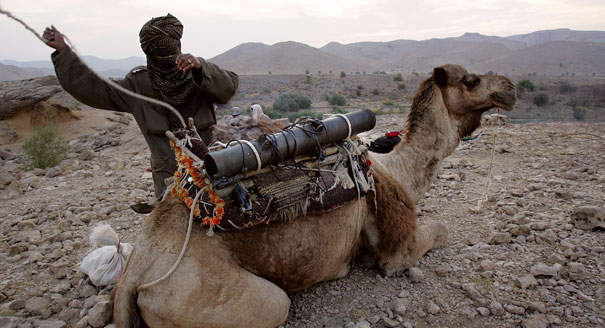The Systematic Conspiracy Against Balochistan’s Development

Balochistan, the largest province of Pakistan by land, possesses considerable strategic and economic importance owing to its plentiful natural resources, extensive coastline, and geopolitical location. Nonetheless, the province has historically suffered from underdevelopment, insecurity, and socio-economic inequality. Recently, the government and its allies have made a concerted effort to invest in Balochistan’s development, emphasizing infrastructure, education, healthcare, and employment generation. This progress has encountered organized and violent opposition from prohibited terrorist organizations, whose main objective is to undermine peace, prosperity, and public welfare throughout the province.
These antagonistic forces are engaged in a systematic and purposeful conspiracy to obstruct Balochistan’s progress. Their policy is not just based on philosophy but seems to be influenced by external agendas and vested interests that benefit from regional instability. By focusing on development projects, these groups seek to perpetuate Balochistan’s cycle of deprivation and dependency, so ensuring its populace remains disconnected from both the national and global economy. The extent and character of their assaults indicate a discernible pattern, one evidently designed to undermine any initiatives aimed at enhancing the quality of life for the average person.
Terrorist groups have consistently targeted infrastructure projects, especially roads, bridges, and transport networks essential for connection inside Balochistan and with the broader nation. These projects are not merely physical structures; they symbolize hope, access, and opportunity for isolated populations. When such projects are targeted, it is not alone public infrastructure that is obliterated, but the future ambitions of many individuals who rely on these routes for education, employment, and healthcare access. Undermining such vital connections obstructs growth in entire regions and conveys a message of apprehension to both investors and local inhabitants.
Likewise, assaults on schools and educational establishments are profoundly concerning. Education is fundamental to societal advancement, and in Balochistan, where literacy rates rank among the lowest nationally, the destruction of schools is a ruthless effort to maintain the populace in a state of ignorance and disempowerment. These terrorist organizations recognize that an informed populace is more challenging to exploit and better equipped to assert rights and demand accountability. By targeting schools, they are effectively seeking to deprive future generations of the resources necessary to escape the cycle of poverty and marginalization.
Healthcare infrastructure is also under attack. Hospitals and clinics, frequently established with considerable challenges in remote regions, are essential for providing fundamental health services to the populace. Terrorist organizations seek to exacerbate the public health crisis and erode trust in the state’s capacity to care for its citizens by targeting institutions, vehicles, and communication networks that support them. These actions are not only brutal but also indicative of a larger campaign to incite popular discontent and estrangement from the state.
A particularly troubling element of this plot is the explicit targeting of construction machines, trucks, and contractors engaged in development activities. These entities are not merely machinery; they symbolize employment, sustenance, and advancement. Contractors, engineers, and labourers engaged in projects frequently encounter death threats or worse, leading to postponed or abandoned endeavours. This atmosphere of apprehension further deters investment and impedes any potential developmental momentum. Furthermore, by dismantling communication networks, these groups seek to isolate communities and obstruct coordination among government institutions, security forces, and local stakeholders.
The primary objective of these acts of sabotage is to deny the populace of Balochistan essential services, including clean water, electricity, education, healthcare, and work prospects. These constitute essential human rights, and their denial by violent methods represents a profound injustice. The underdevelopment of Balochistan is not coincidental; it is being deliberately engineered by individuals who oppose a stable, wealthy, and unified Balochistan. This intentional focus on development constitutes economic terrorism.
The matter is further complicated by the involvement of foreign entities allegedly supporting these prohibited organizations. By inciting turmoil and undermining developmental initiatives, these entities aim to destabilize not only Balochistan but Pakistan in its entirety. The efficacy of significant projects such as the China-Pakistan Economic Corridor (CPEC), via Balochistan, is largely contingent upon regional stability. Consequently, assaults on development initiatives possess greater strategic ramifications and are a component of an extensive geopolitical contest, adversely affecting the populace of Balochistan.
A multifaceted strategy is necessary to mitigate this hazard. Security must be fortified for all developmental projects, and intelligence skills should be increased to preempt and disrupt terrorist actions. Simultaneously, a robust emphasis on community involvement is essential. The inhabitants of Balochistan should be regarded as stakeholders in their own development. When local communities are engaged and derive real benefits from development, they serve as the most potent safeguard against radical ideologies and conspiratorial narratives.
The deliberate targeting of development projects by proscribed terrorist organizations in Balochistan poses a significant threat to the region’s future. These assaults are not arbitrary acts of violence but rather components of a deliberate plot to maintain the province’s underdevelopment and its populace’s deprivation. The state, civil society, and the international community must acknowledge this as a war against progress and respond with determination, solidarity, and empathy for the people of Balochistan. Only then can the province actualize its complete potential and assume it’s due position in a tranquil and prosperous Pakistan.











